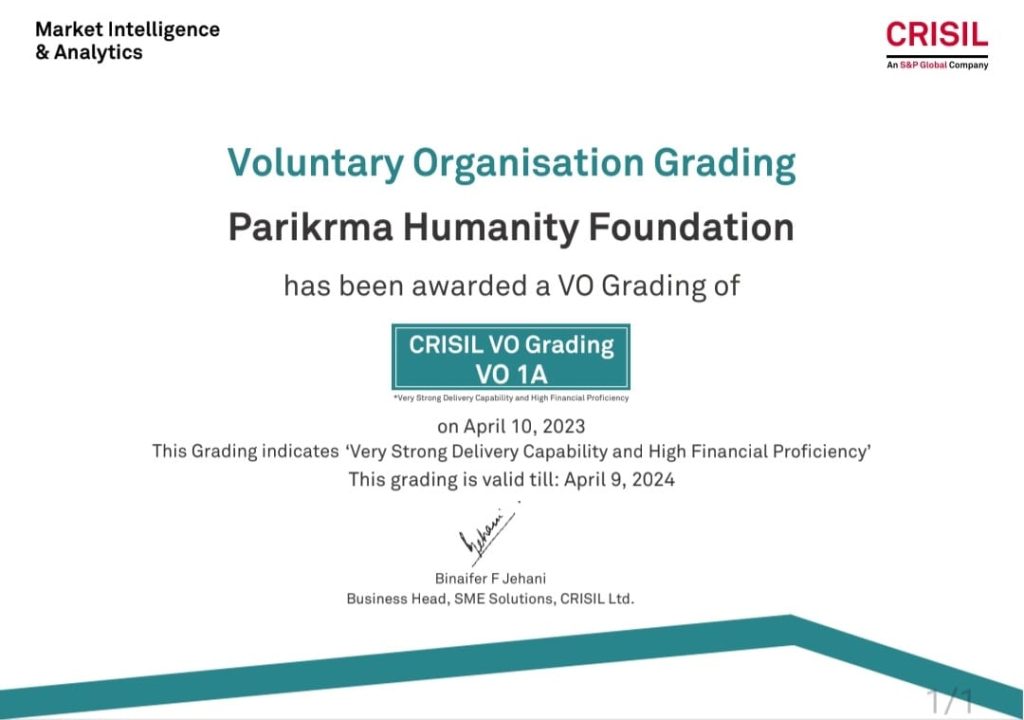New Paper & Award
CRISIL grading & more…

VO 1A grading again!
We are extremely thrilled to inform you that CRISIL has yet again awarded us the VO 1A Grading for 2023.
This grading indicated “‘Very Strong Delivery Capability and High Financial Proficiency”.
The VO Grading is an independent opinion of CRISIL on the VO’s relative capability to achieve its stated objectives sustainably.

VO 1A grading again!
We are extremely thrilled to inform you that CRISIL has yet again awarded us the VO 1A Grading for 2023.
This grading indicated “‘Very Strong Delivery Capability and High Financial Proficiency”.
The VO Grading is an independent opinion of CRISIL on the VO’s relative capability to achieve its stated objectives sustainably.
New paper alert!
Anuradha Roy Chowdhury, Head of Operations, Parikrma is the paper’s lead author, “Using the concept of third spaces to teach under-served children the critical skills needed for upward socio-economic mobility” published in INTEDProceedings 2023.
The impoverished homes from which children from underserved communities come, their First Space, cannot provide the critical soft skills they need. Similarly, their schools, comprising their Second Space, offer them academics of variable quality and little else. This paper presents findings from a project that attempts to use the sociological concept of `Third Space’ to address this lacuna.
The authors believe Third Spaces is an innovative way to solve this problem. Spaces outside school hours, managed by instructors who are not school employees, and using methods that are fun and interactive, represent a viable and sustainable option for teaching critical skills to children who would otherwise not learn them at all; in a way that is enjoyable and easily sustainable in under-resourced schools.
Results: Initial data from the study indicates that critical skills not taught in schools due to scarcity of resources, and because they are not even recognized as being critical, can be taught effectively in the Third Space environment – more effectively even than if they were taught in the traditional setting of the school.
This innovation could pragmatically address critical learning gaps in developing countries like India.
